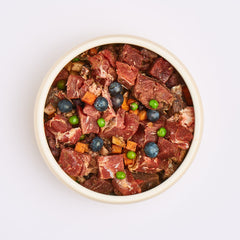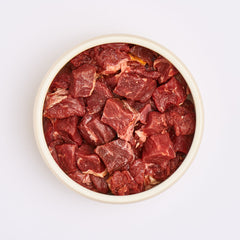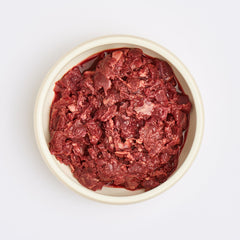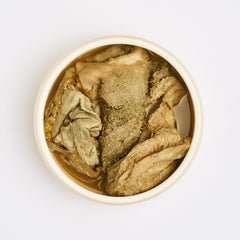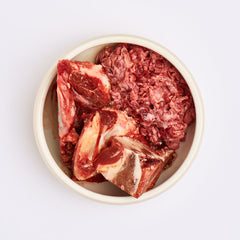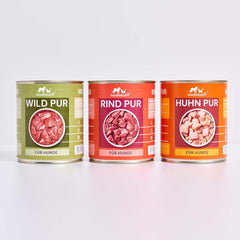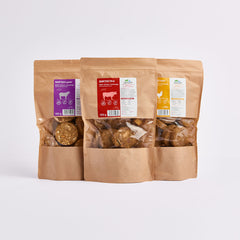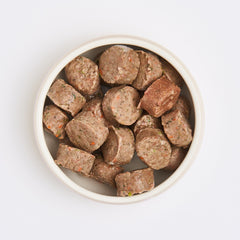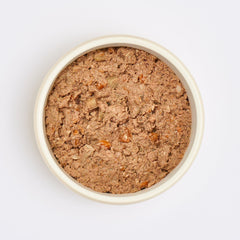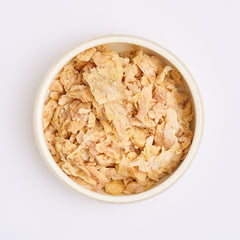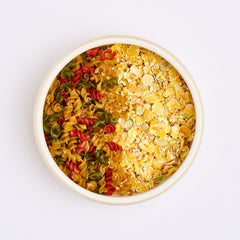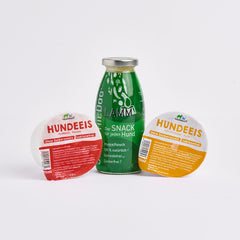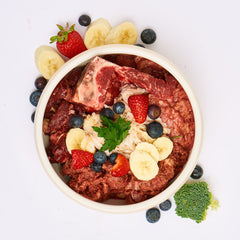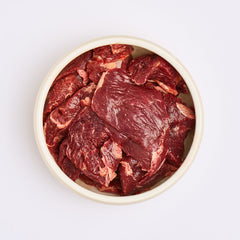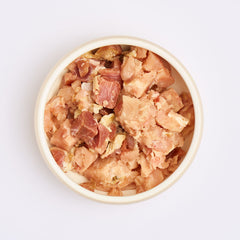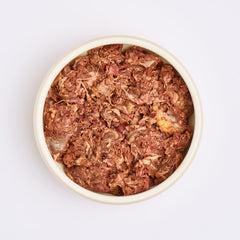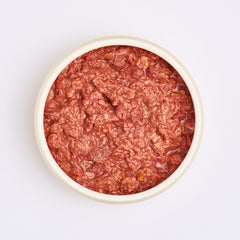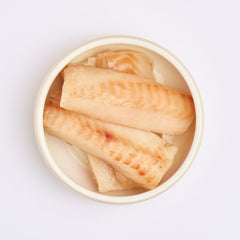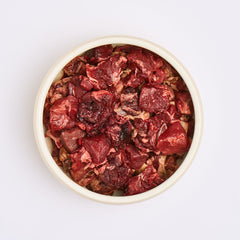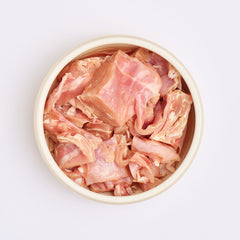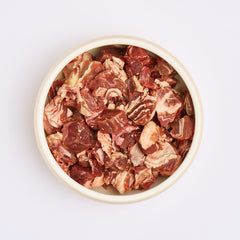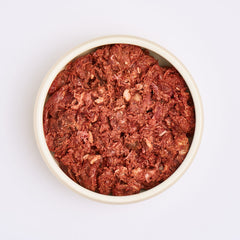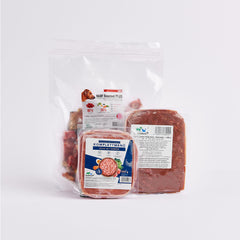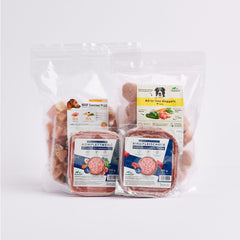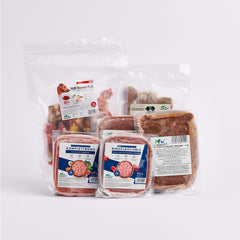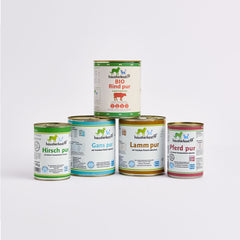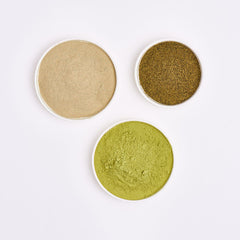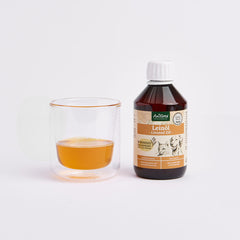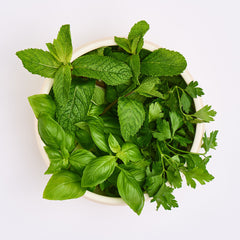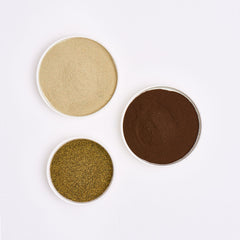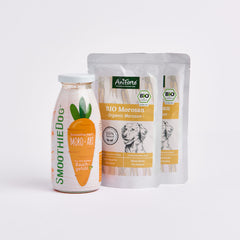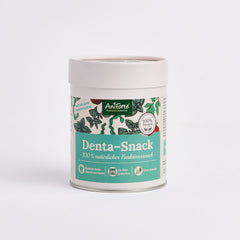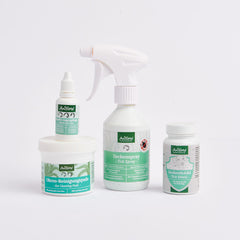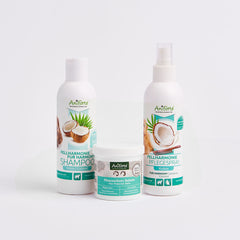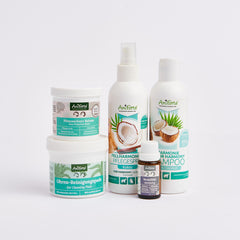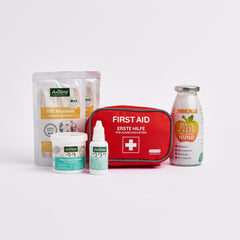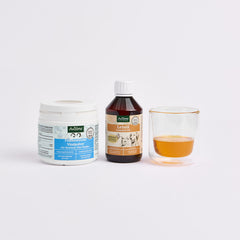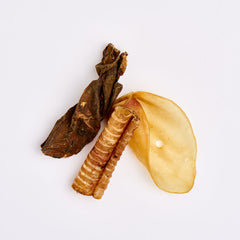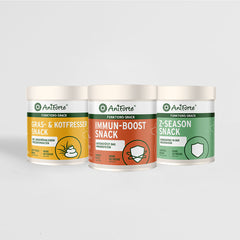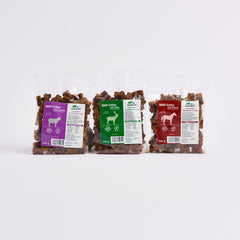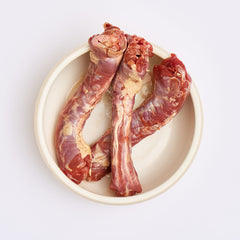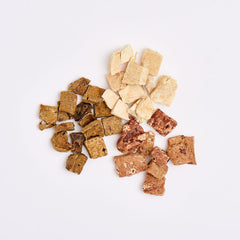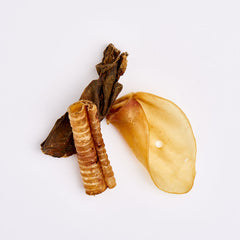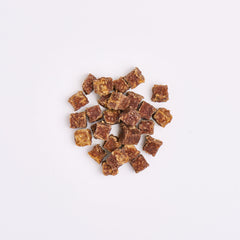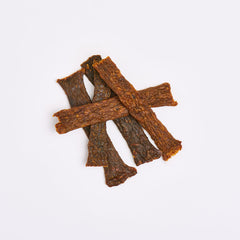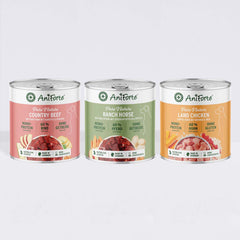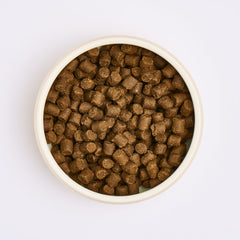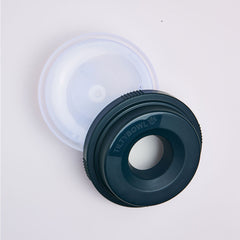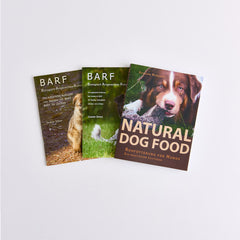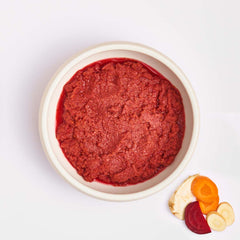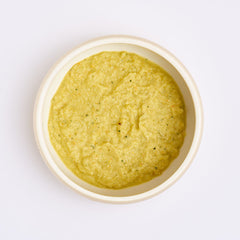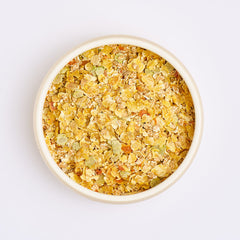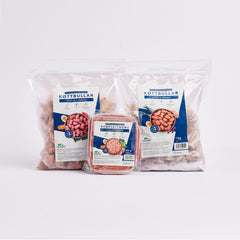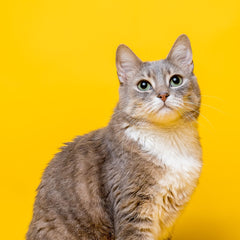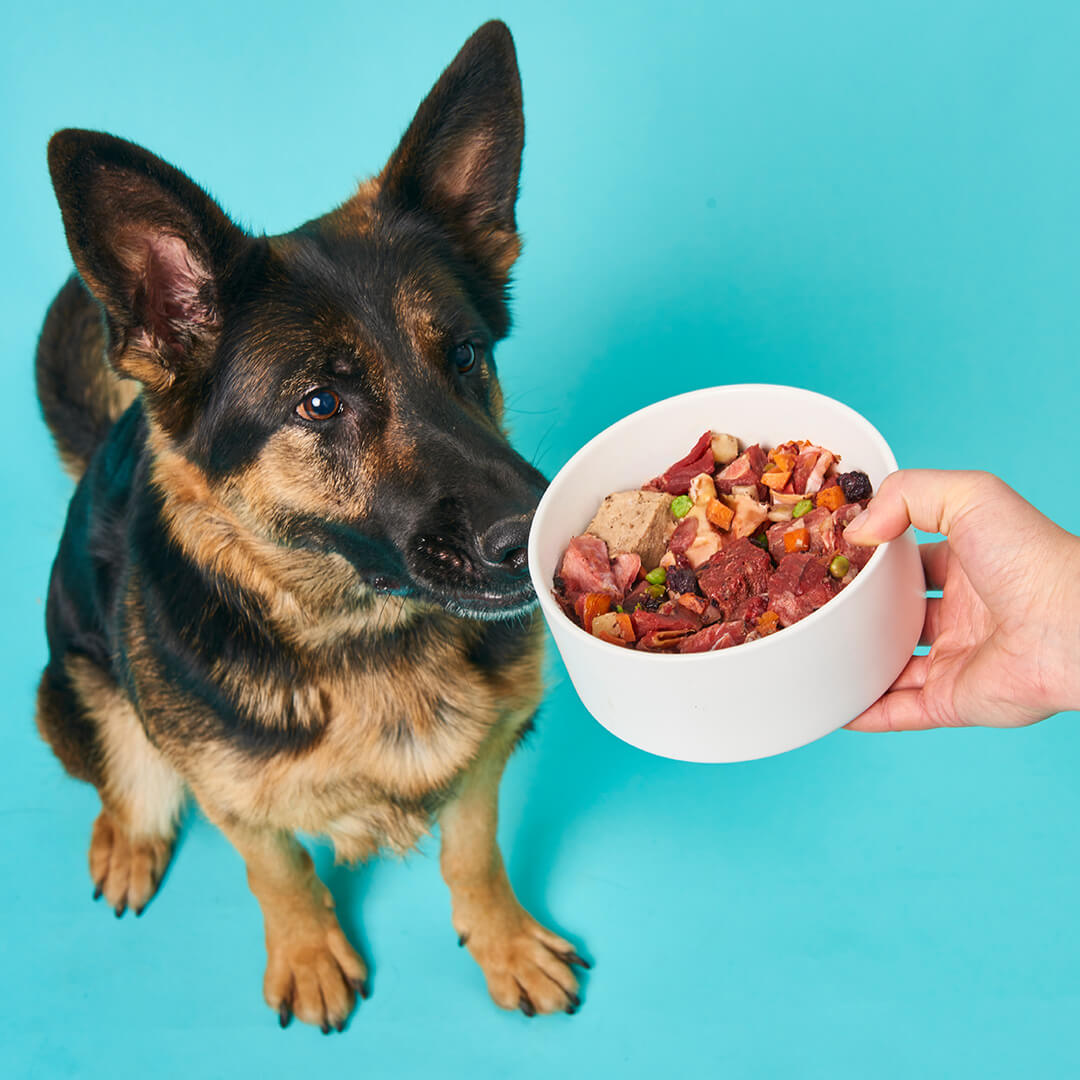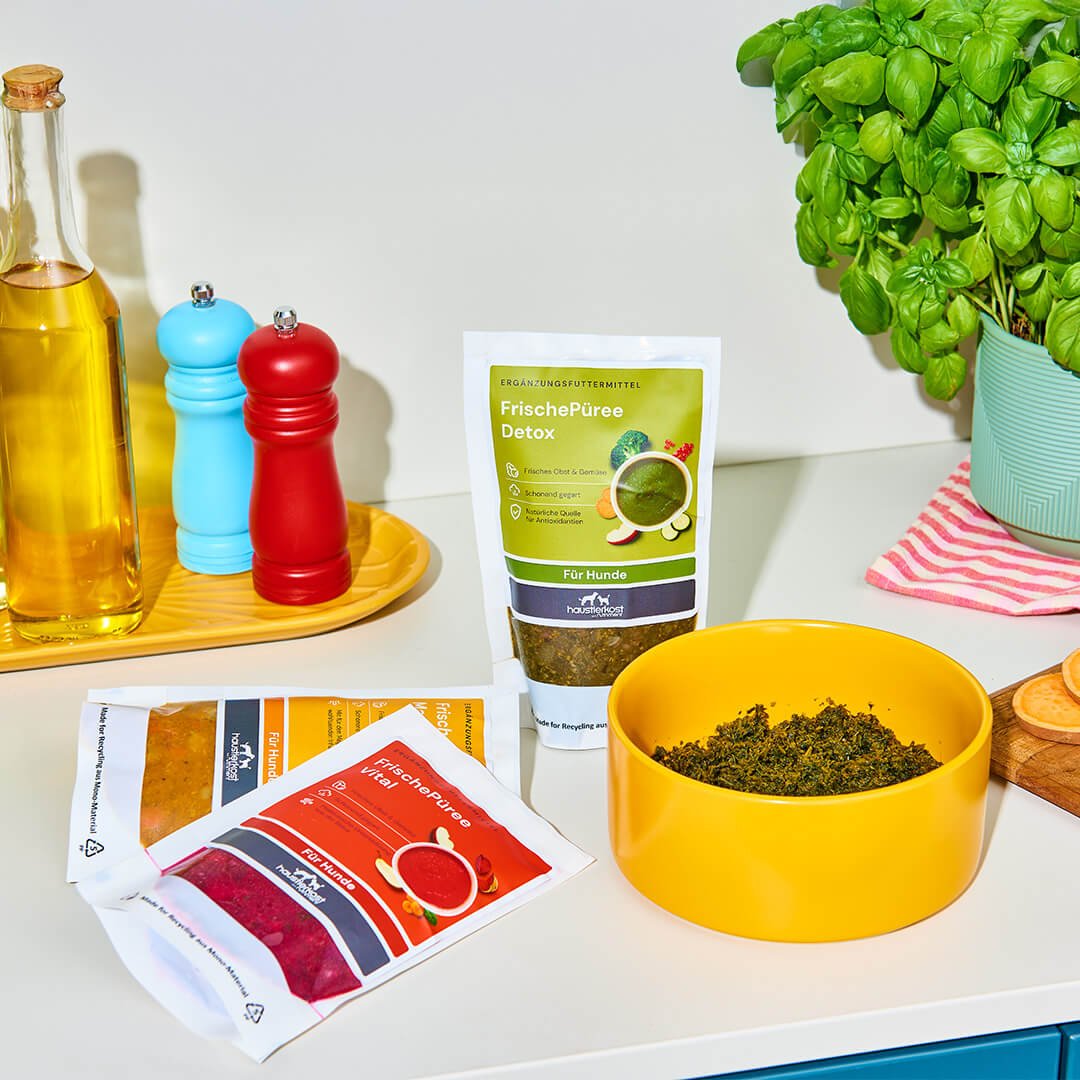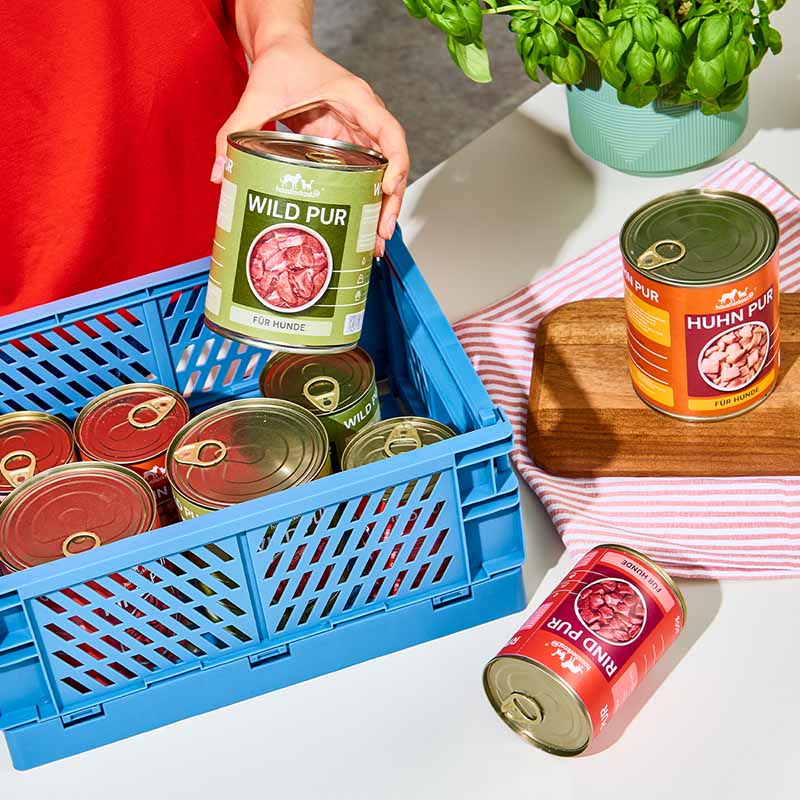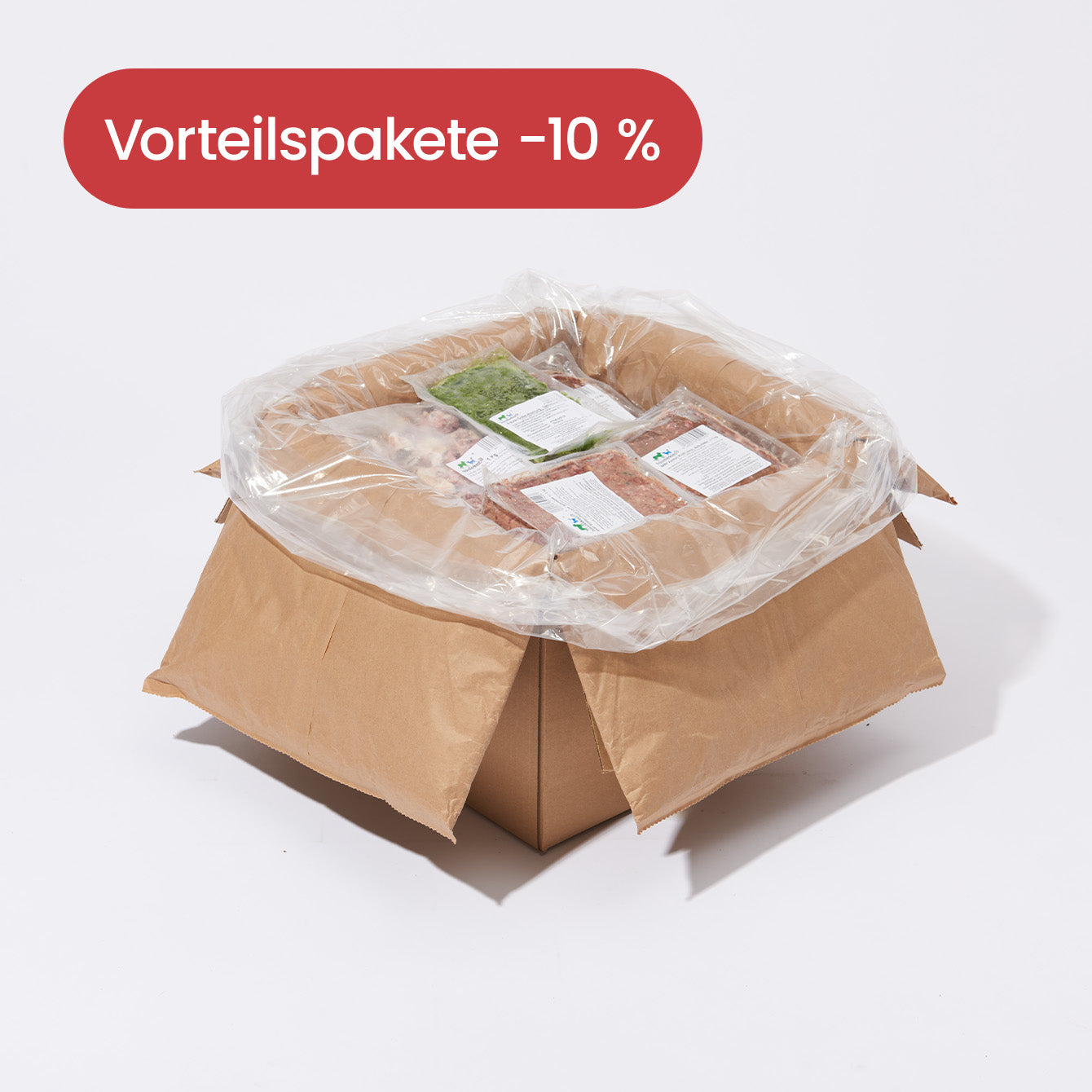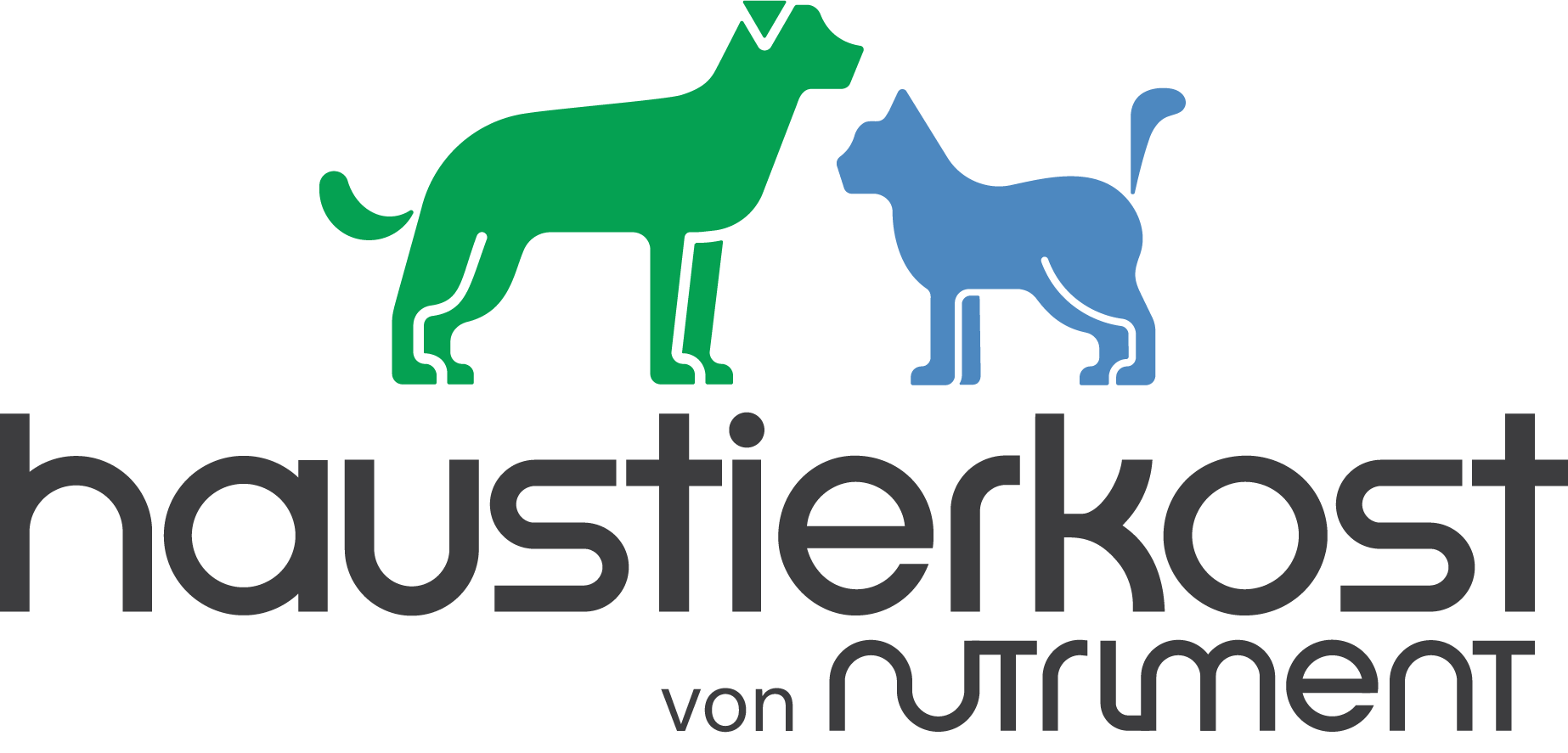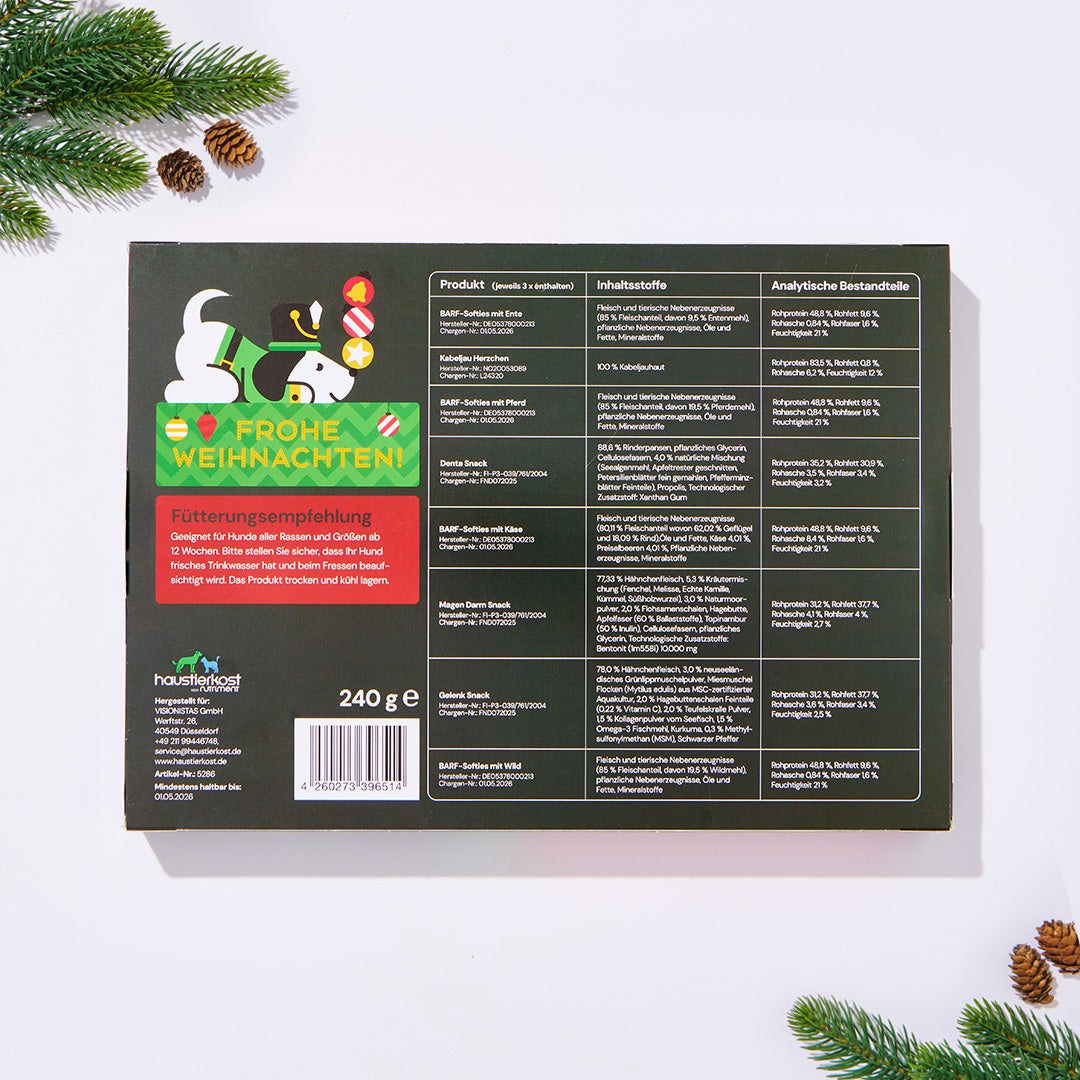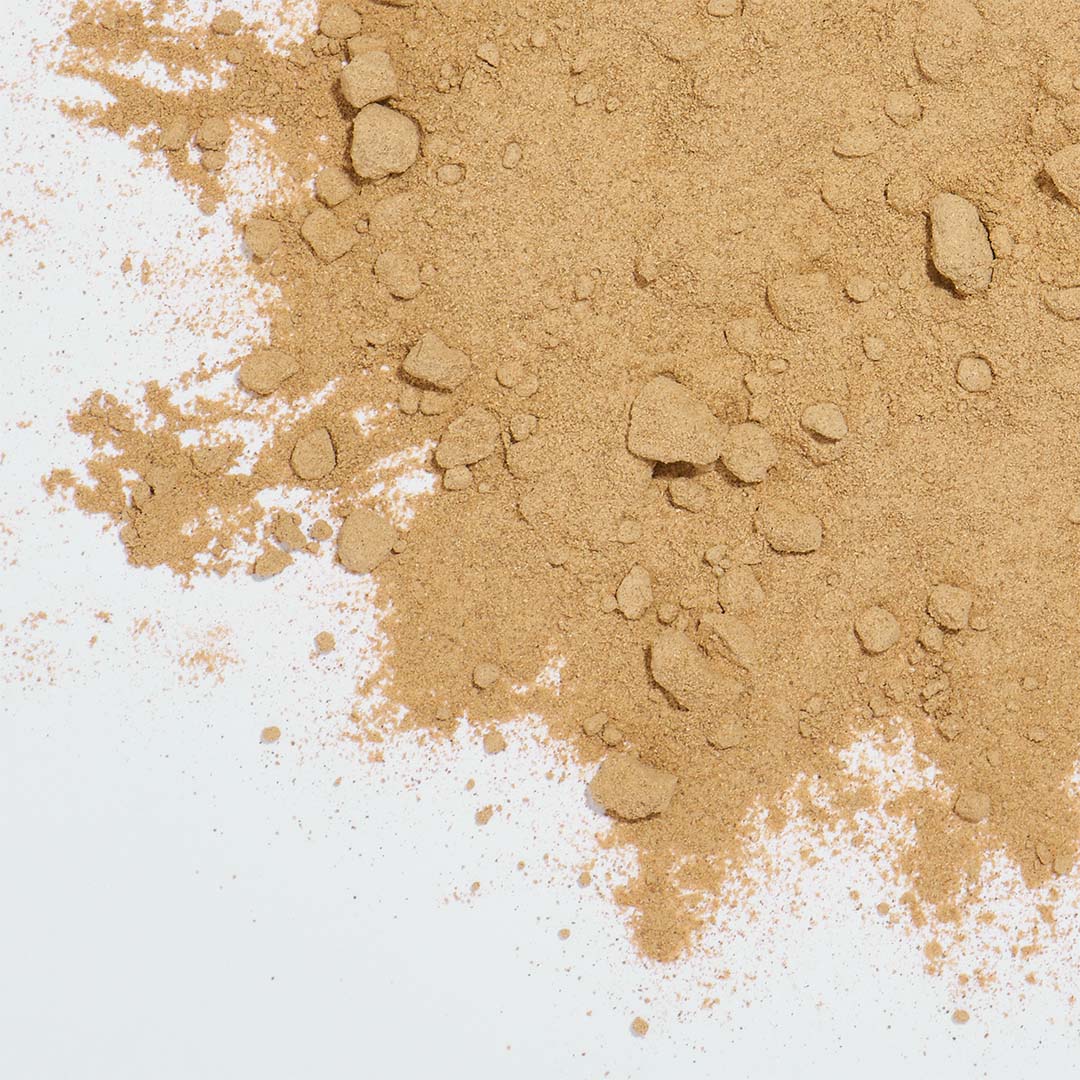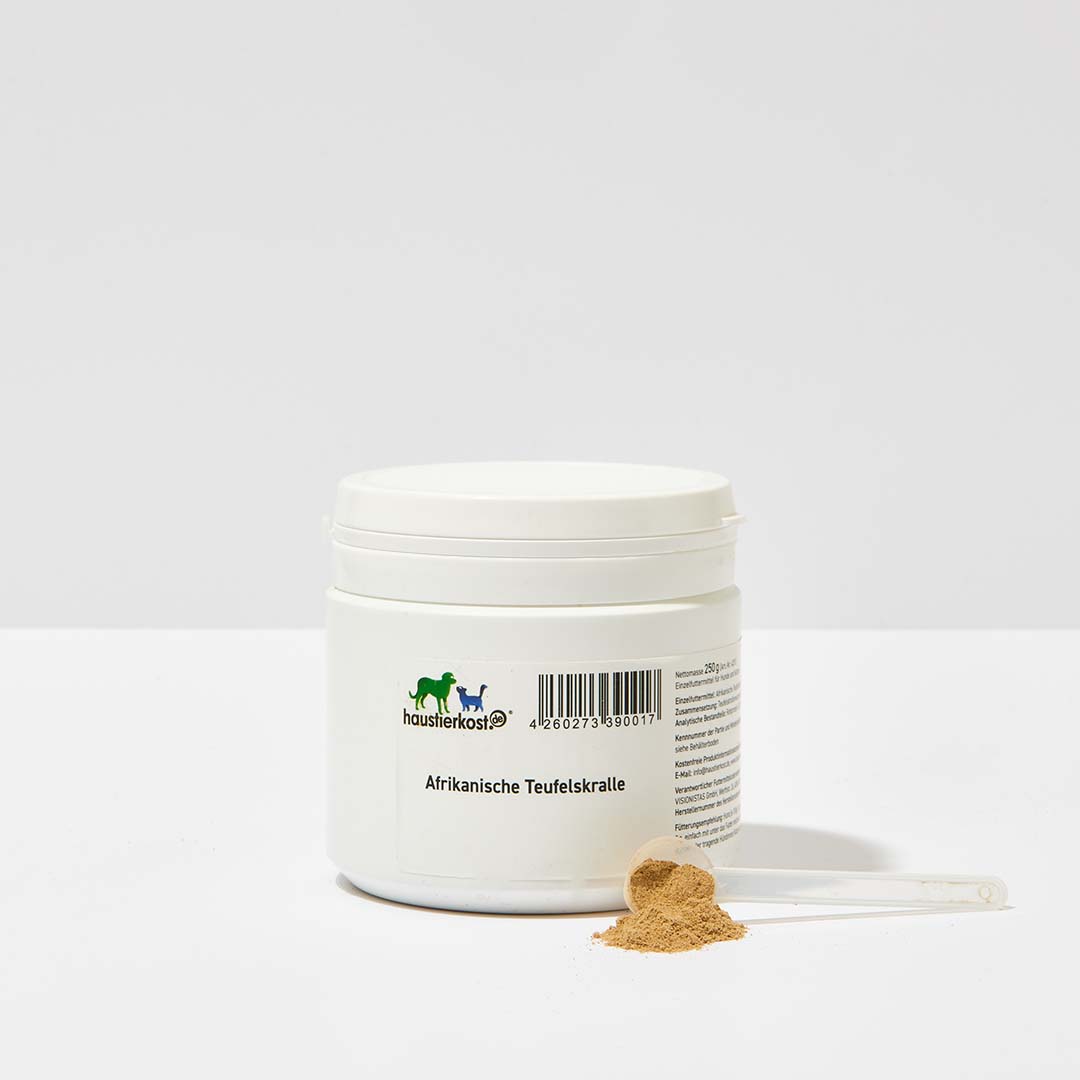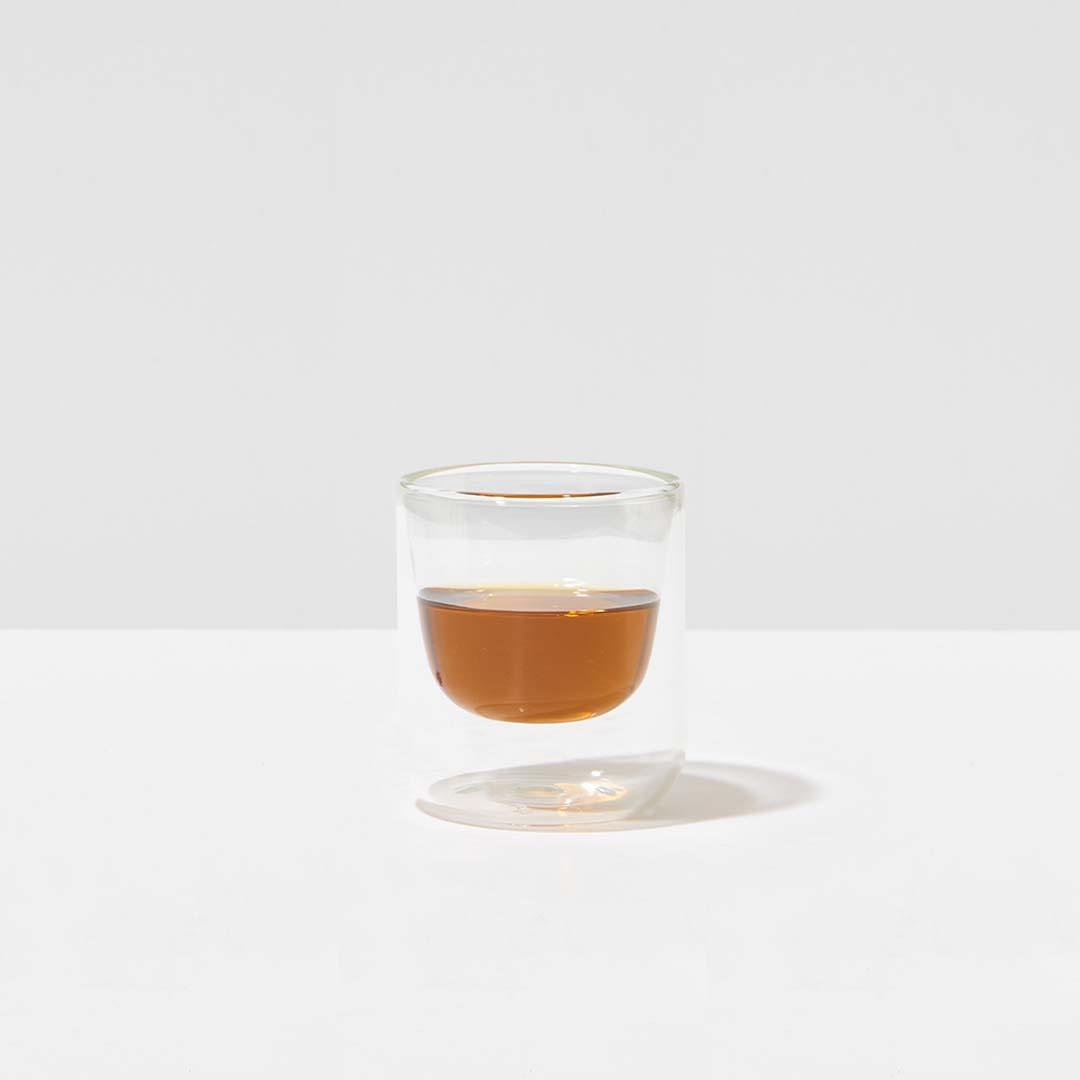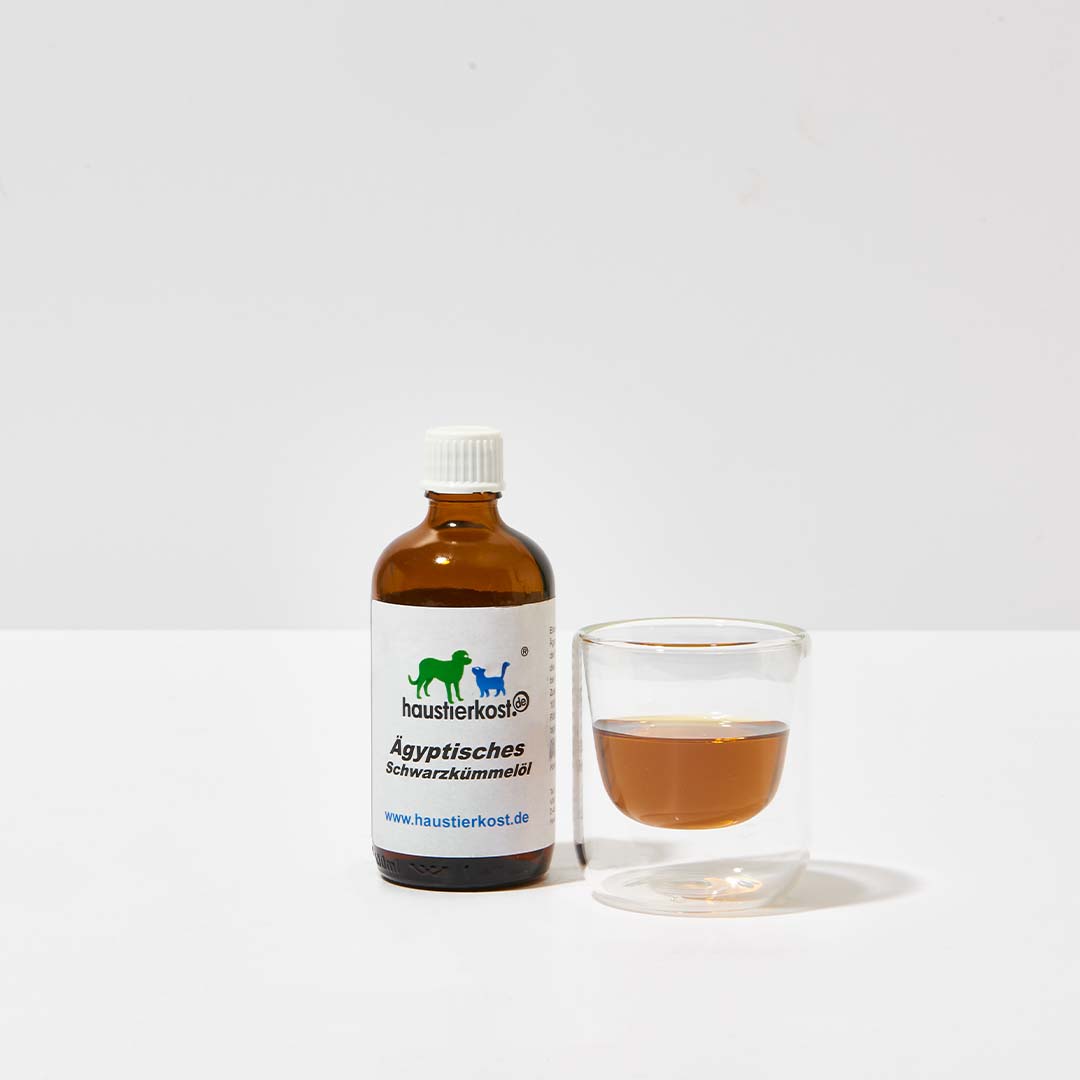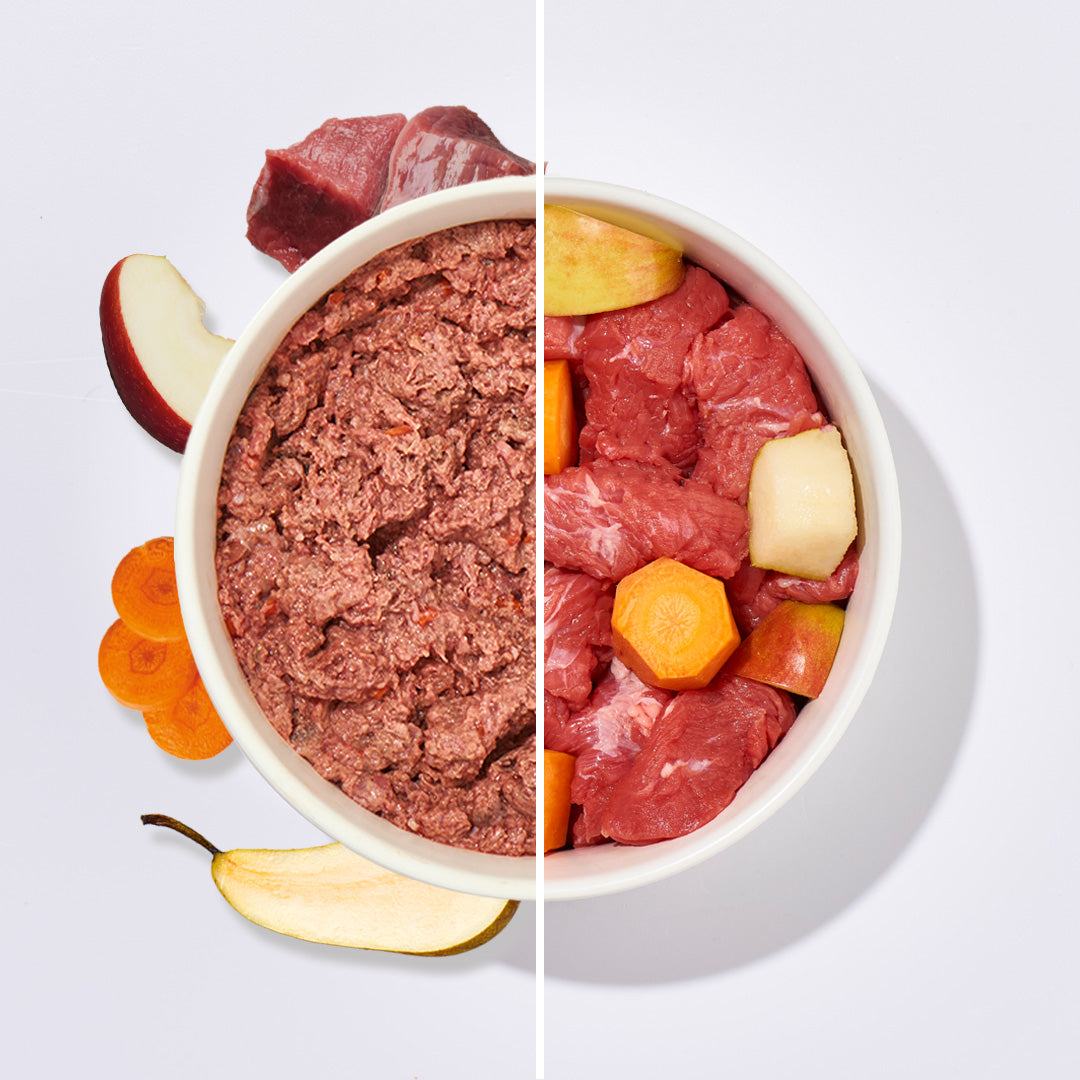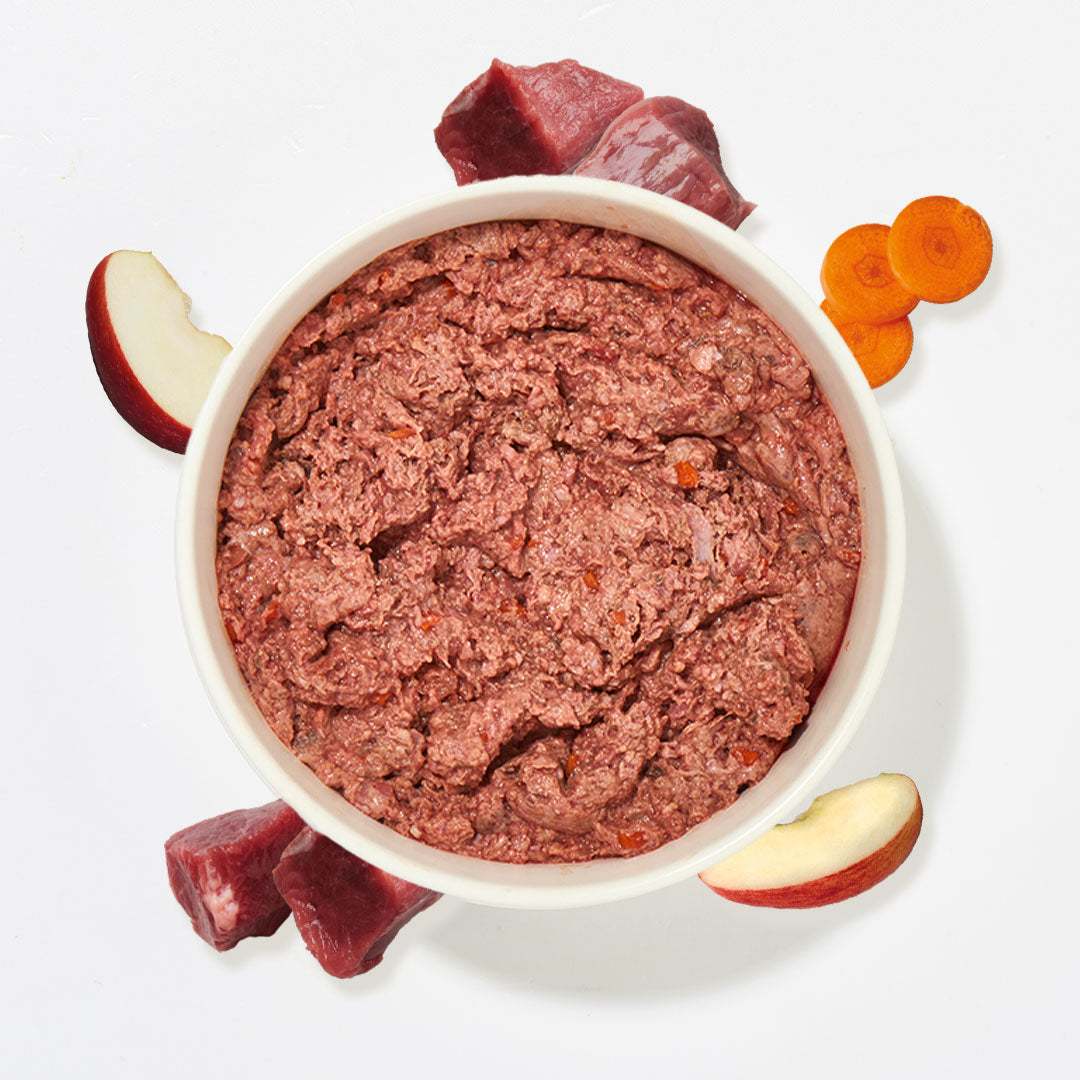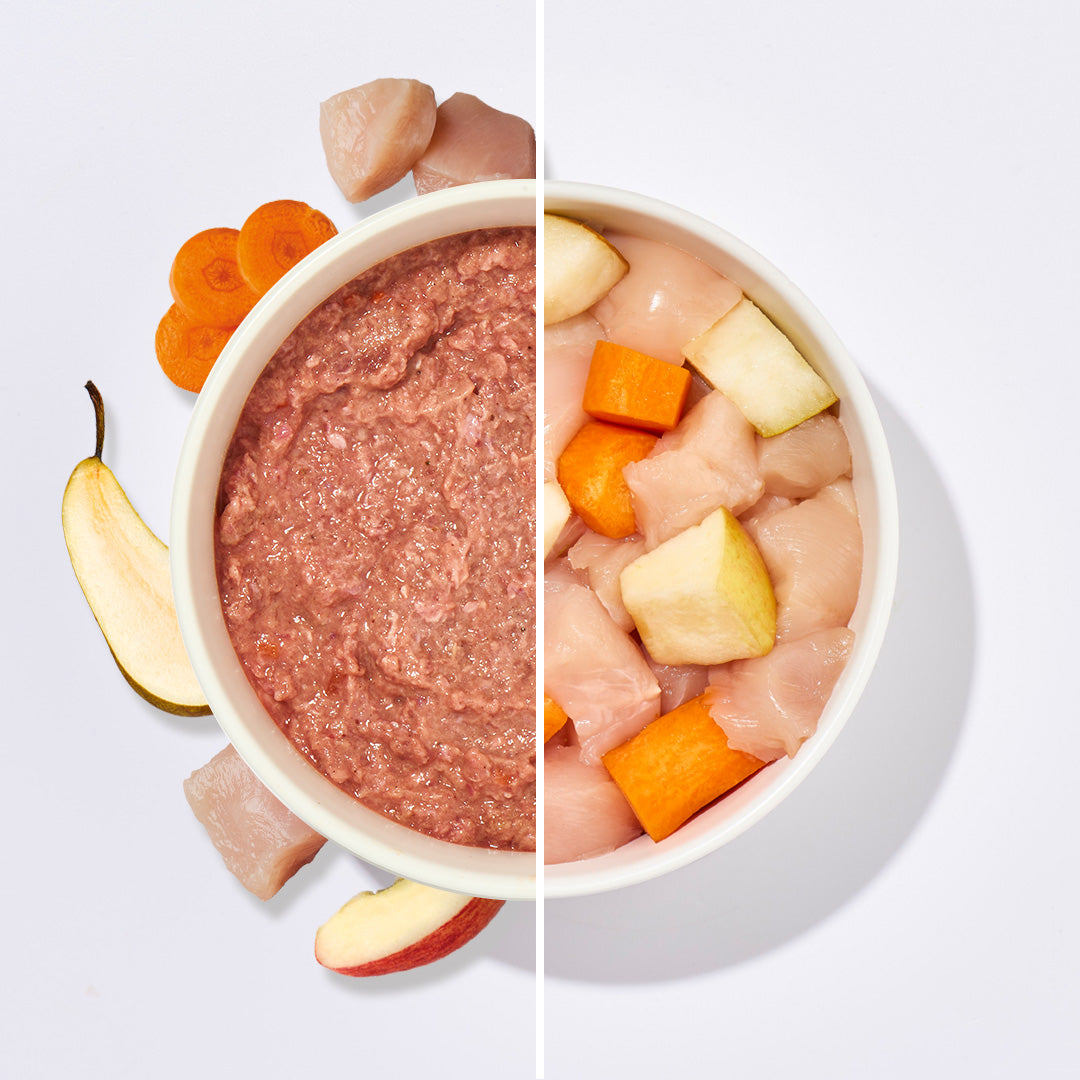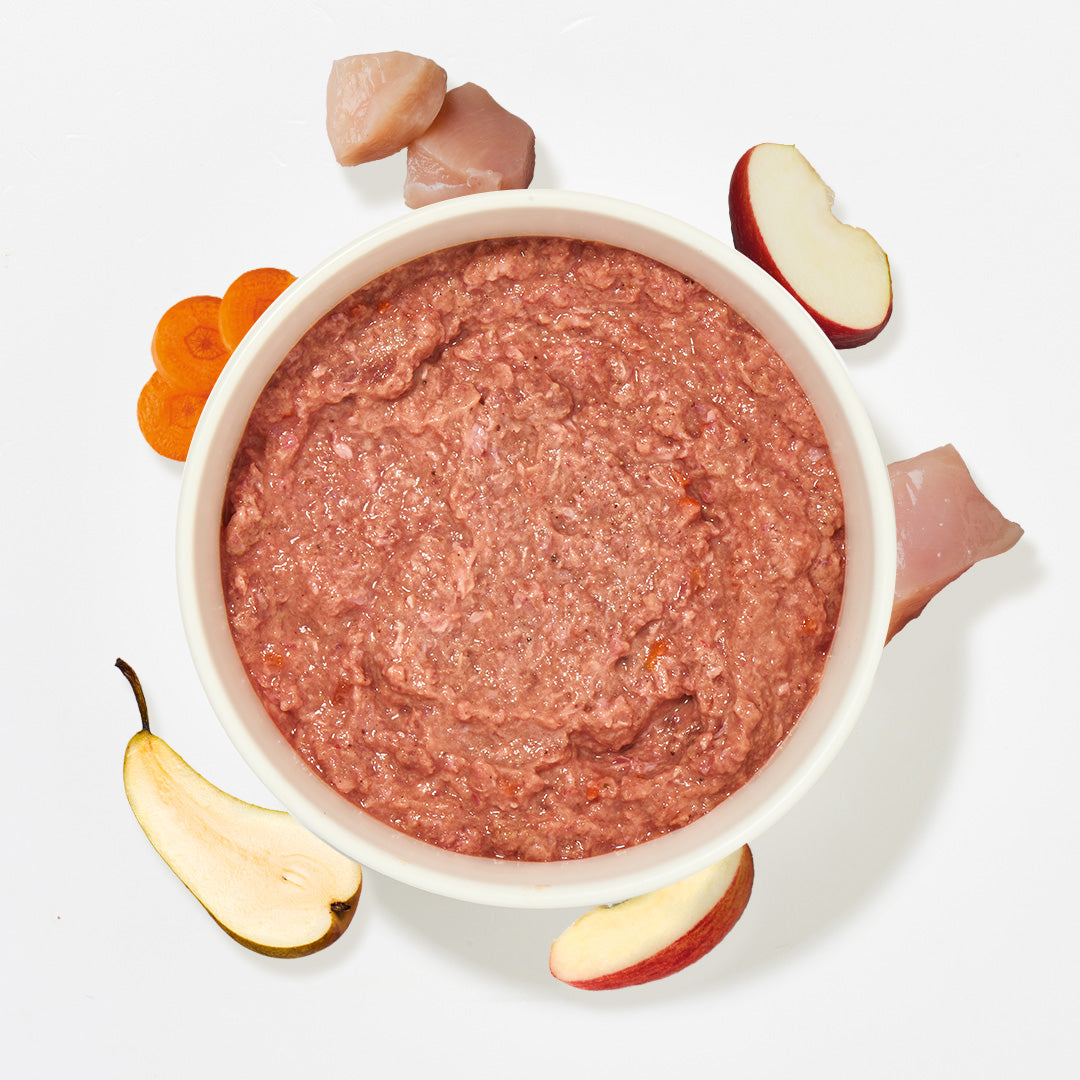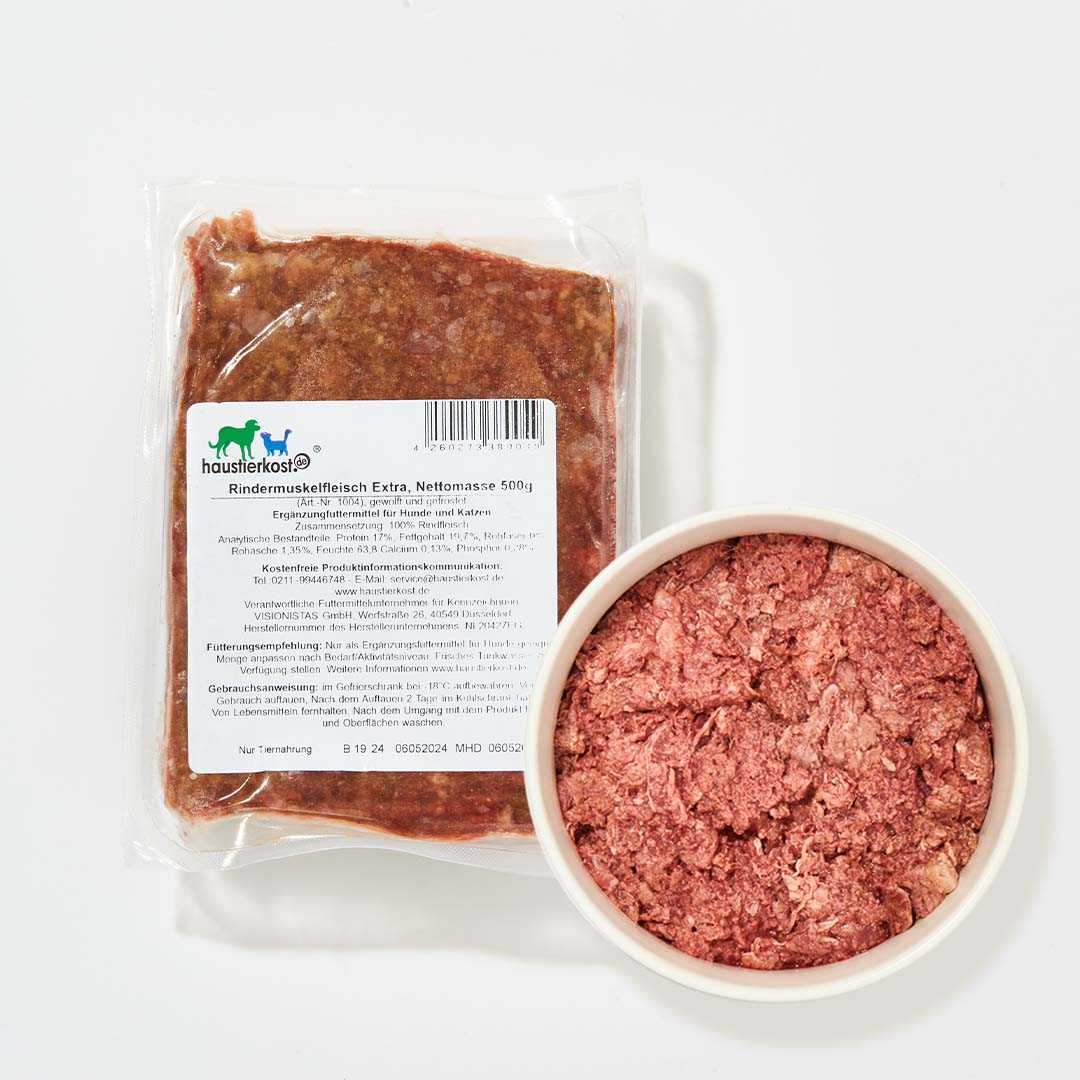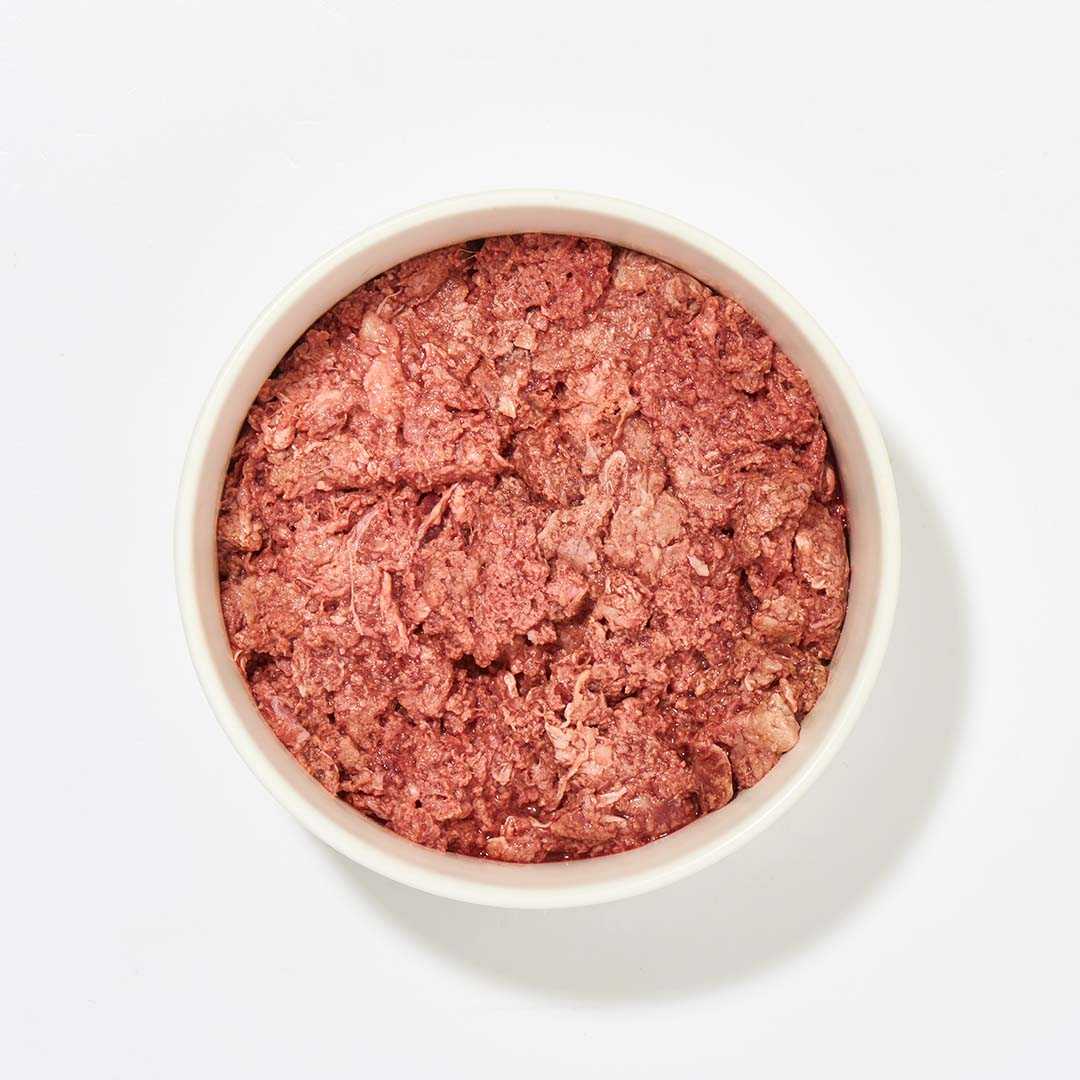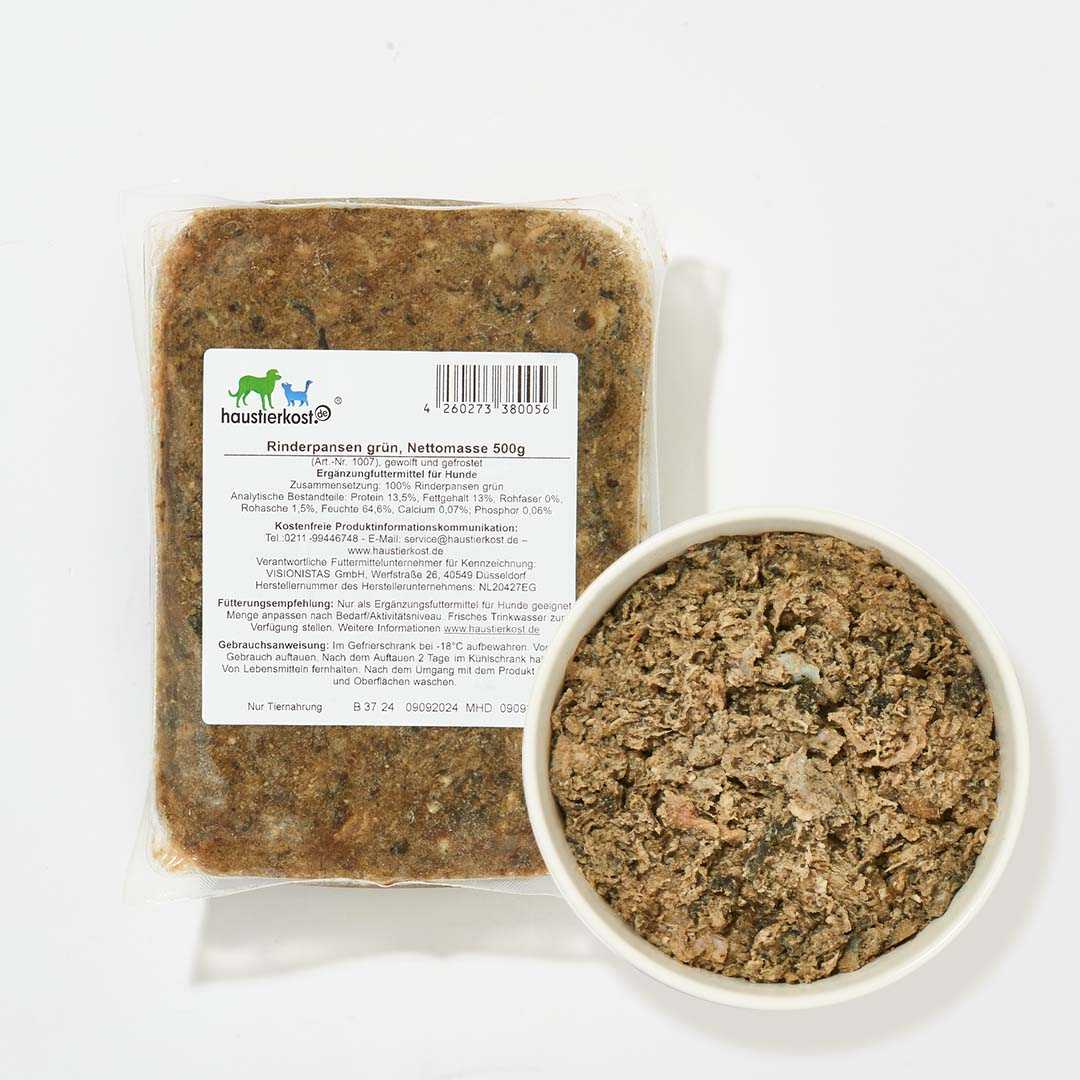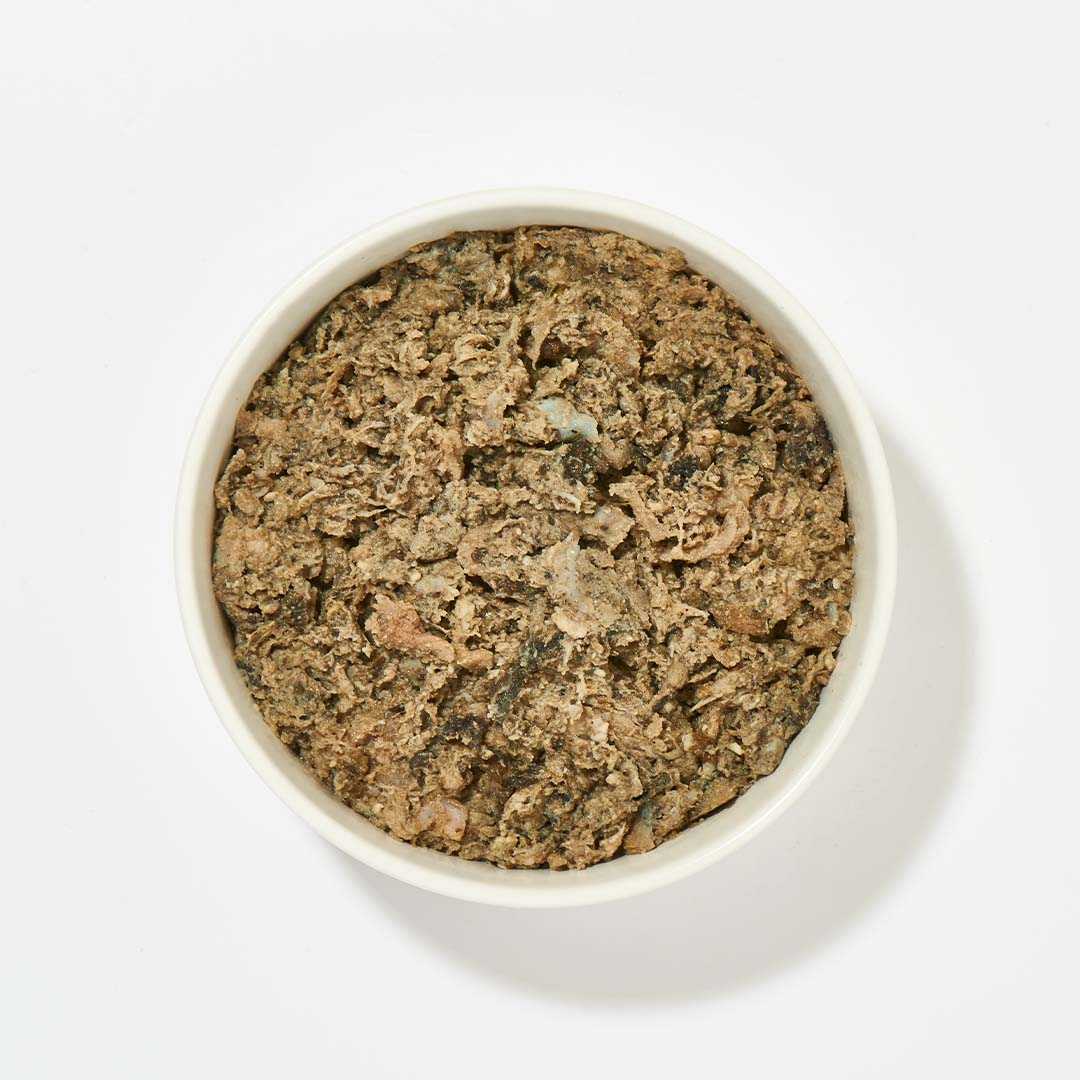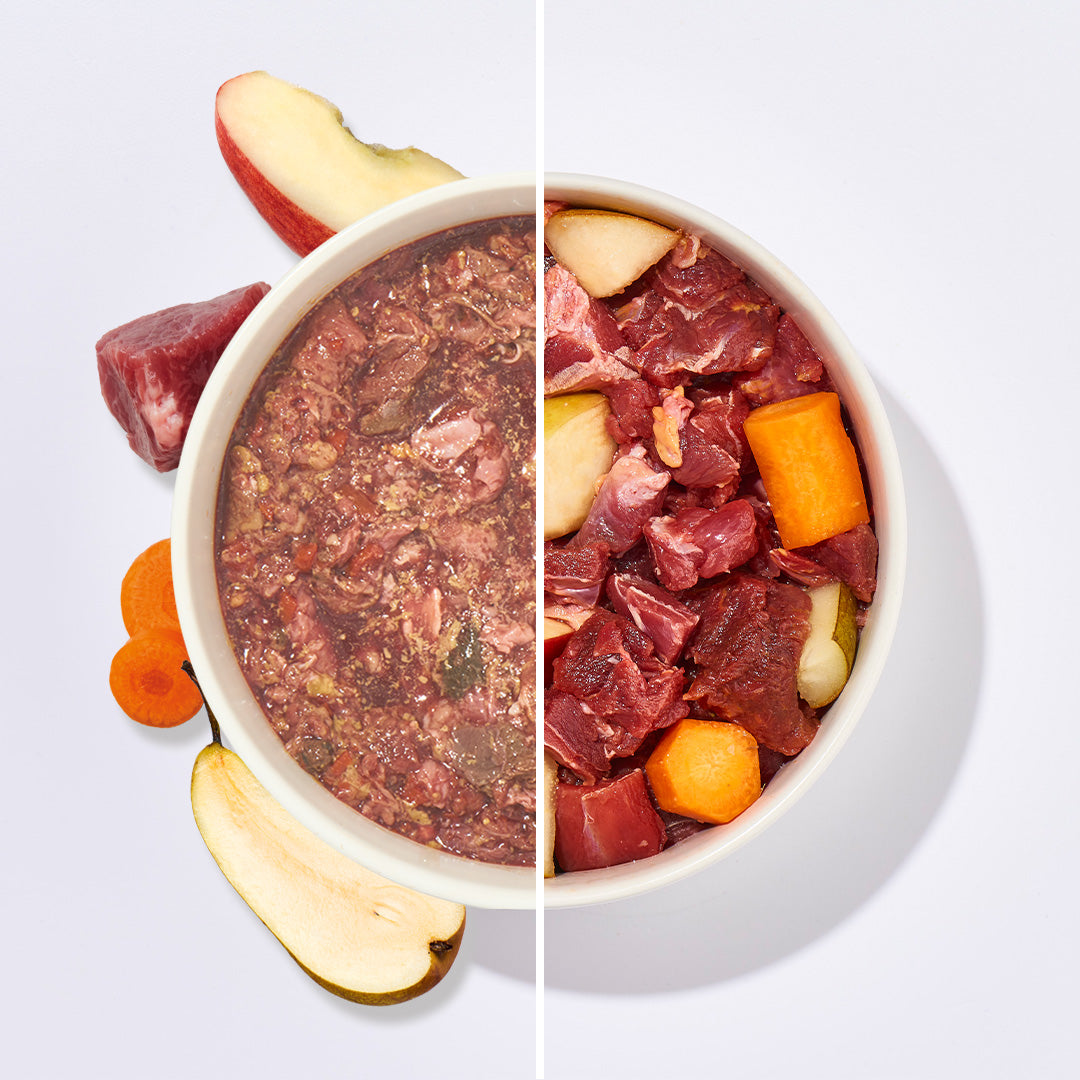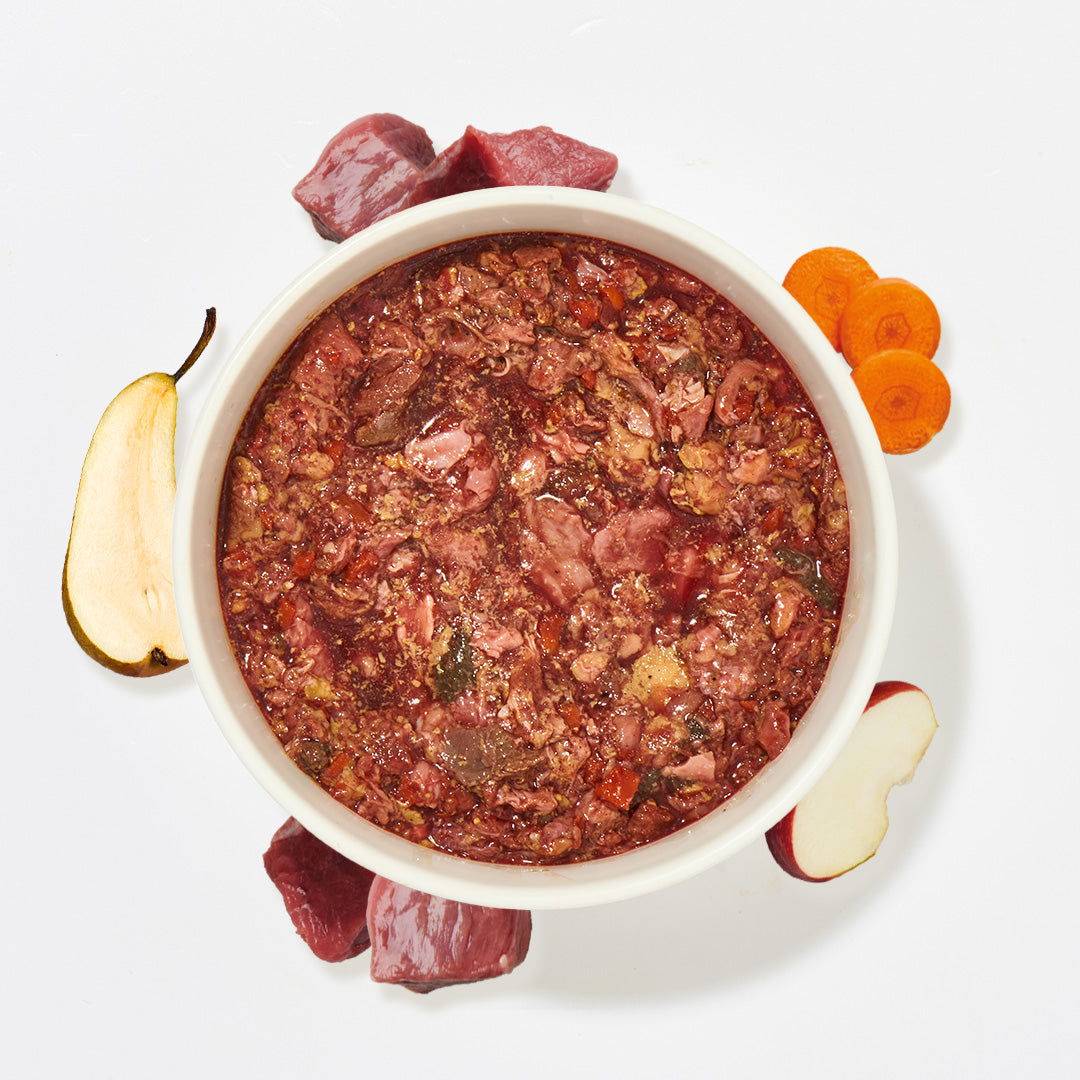BARF for cats
Can my cat eat raw meat?
Cats are true carnivores (meat eaters). They need at least 95% meat per day for a healthy metabolism. In nature, their diet consists of mice, birds, fish and insects. It is therefore our responsibility to recreate this composition of proteins, fats, carbohydrates and fiber as naturally as possible. Our high-quality supplementary feed will help you to create a species-appropriate diet plan.
What is the best way to switch?
You can change a healthy cat from one day to the next. This is not always easy with these very stubborn animals. It is best to start with popular types of food such as poultry or fish. Poultry hearts are also popular. Sometimes the cat will accept it better if the meat is cooked a little. It is important that you never let a cat go hungry for a long period of time, as this could damage its organs. Any supplements such as powder and oil should be added slowly.
Does every meal have to be balanced?
That is neither necessary nor possible. The ancestors of today's domestic cats also hunted different prey wherever possible in order to provide themselves with everything they needed through variety. They should therefore ensure that they have a varied and balanced diet, just like nature does.
Is it okay if my cat drinks less water now?
As original desert animals, cats' instincts are programmed to take in liquids through food. Their sense of thirst is not very pronounced due to the natural lifestyle of their ancestors. Nevertheless, they must drink between 30 and 70 milliliters of liquid per day. The moisture content in dry food is just around 12%. This explains why many cats are dehydrated and increasingly suffer from kidney and bladder diseases. Raw feeding is one of the best ways to provide your pet with enough water and prevent kidney problems.
My cat is producing less stool – is this normal?
This is not unusual and is another positive side effect of feeding fresh meat. It does not contain any unnecessary fillers and can therefore be better metabolized/used. Please ensure, however, that stools are passed regularly.
Can I mix prepared food and raw meat?
This is not unconditionally recommended. Many cat owners entertain this idea out of fear of nutritional deficiencies. But this is unfounded as long as all important nutrients are taken into account when feeding raw food. If you mix ready-made food and raw meat, this can even have negative effects on your cat's health. This is because raw food and ready-made food (dry food, wet food) require different digestive processes. This can lead to digestive disorders, which manifest themselves in the form of constipation, flatulence or diarrhea, for example.
What is the best way to defrost the meat?
We recommend that you let the meat thaw overnight in the refrigerator. Please remove the meat from the packaging before thawing and place it in a porcelain or glass bowl that you can cover with a plate, for example, or use the Lock & Lock defrosting box with a draining rack available in the shop. The meat juices contain numerous vital substances, so we recommend that you feed these to your animal. If you feed partially frozen meat, this can lead to gastrointestinal problems. Thawed raw meat can be kept in the refrigerator for 2-3 days.
Why does my cat have diarrhea when switching to raw meat?
After switching to raw meat, diarrhea may occur occasionally at first. A distinction should be made between watery diarrhea and soft stools. If the diarrhea is very watery or lasts for a long time, we recommend consulting a veterinarian, as this may have causes other than the change in diet. Soft stools, on the other hand, are a normal side effect. However, the stools will return to normal as soon as the digestive system gets used to the new food.
How high should the protein content be?
In contrast to dogs, cats have a much higher protein requirement. Unless there are special needs (illness, etc.), this should be on average 30% in the dry matter, which corresponds to a proportion of around 9.5% in the original form of meat/fish.
What should be considered when feeding bones?
Bones (and cartilage) must be fed raw and must not be heated. Heating changes the structure of the bones; they become brittle and splinter. This can lead to serious injuries. Please also pay attention to this with meat mixtures if you boil them or heat them in any other way. The amount of bone/cartilage required should be adjusted to the needs of the individual cat.
The Ca:P ratio is ~1.15:1.
How much food does a cat need daily?
The individual energy requirements of the cat depend greatly on age, breed, size and activity. Kittens in the growth phase naturally have a particularly high energy consumption. Up to the age of about one year, the growing cat can eat almost as much as it likes. Of course, the stature must be observed individually. An adult, normally active cat needs an approximate food requirement of 25-30 g per kg of body weight per day. Please take into account that an outdoor cat catches some meals itself and these should then be deducted from the daily food amount. It is therefore necessary to observe the cat's weight and adjust accordingly.
The amount of food should ideally be divided into 3-4 feedings a day. However, two meals should be given at least. The food should not be left out for longer than this, as it will then become unappetizing for the cat. Unlike dogs, cats are not scavengers.
Can I feed kittens raw meat?
Kittens can of course be fed raw meat from the moment they are supplemented with their mother's milk or as soon as they move in with you. This offers the advantage that you can decide for yourself what your cat can grow up with healthily. Kittens need a relatively large amount of food per day due to their increased energy requirements. Up until about one year of age, cats can eat an almost unlimited amount of food. This should be divided into 4-5 small meals so as not to put too much strain on their small stomachs. Kittens also need significantly more fluids than adult animals. Kittens' meat meals also need to be supplemented with supplements such as taurine, etc.
Why should oil be added to food?
The addition of high-quality feed oils is required to break down fat-soluble vitamins and make them easier to use. The body cannot produce polyunsaturated fatty acids itself; these must be ingested through food. Omega-6 and omega-3 fatty acids play an essential role in cat nutrition. Omega-3 fatty acids in particular are no longer present in sufficient quantities in today's slaughtered animals (in contrast to wild prey). Cats absorb omega-6 fatty acids from the meat. Omega-3 fatty acids, on the other hand, must be added through oil. Oils such as salmon oil , cod liver oil , organic hemp oil and linseed oil are suitable.
My cat doesn't like raw meat, can I boil the meat?
If your cat doesn't like raw meat, you can of course fry the meat first or scald it with hot water. Please make sure not to use products that contain bones or cartilage. Bear in mind that important ingredients may be lost during the cooking process and may need to be replaced by other means.
You can try to cook the meat less and less and slowly introduce the cat to raw meat. Alternatively, you can also use our meat in a can or in bags http://www.haustierkost.de/katze/fleisch-in-dosen.html .
Can I feed my cat grains?
Grain in cat food is controversial. Adult cats do not have an absolute need for carbohydrates. However, they are a suitable source of energy. Generally, caution should be exercised when feeding plant-based products to cats. These foods can cause alkaline urine, which can promote the formation of urinary crystals and urinary stones. Since cats are now pets and no longer wild animals, their bodies have adapted to the way they eat and process food, but grain starch is and remains difficult to digest. Under no circumstances should you feed grain to cats that suffer from allergies, epilepsy, cancer, yeast infections, etc. If they have these diseases, they should not feed them other starchy foods, such as potatoes, rice, corn, or sweet potatoes.
Which nutritional supplements do I need?
Our Taurine-Mineral Mix Cat is useful as a basic supply.
What additional additives you add to the daily ration depends on your cat's individual needs. However, a healthy adult cat with a varied diet usually does not need any additional additives.
Can I get salmonella from raw meat?
As long as you follow common hygiene measures (e.g. washing your hands), the risk is no greater than with any other meat preparation.
Do I need to create a feeding plan for my cat?
Basically, it is good to know what the important components of cat food are and in what proportions they need to be provided. Various factors (age, activity, breed, illnesses, etc.) need to be taken into account.
